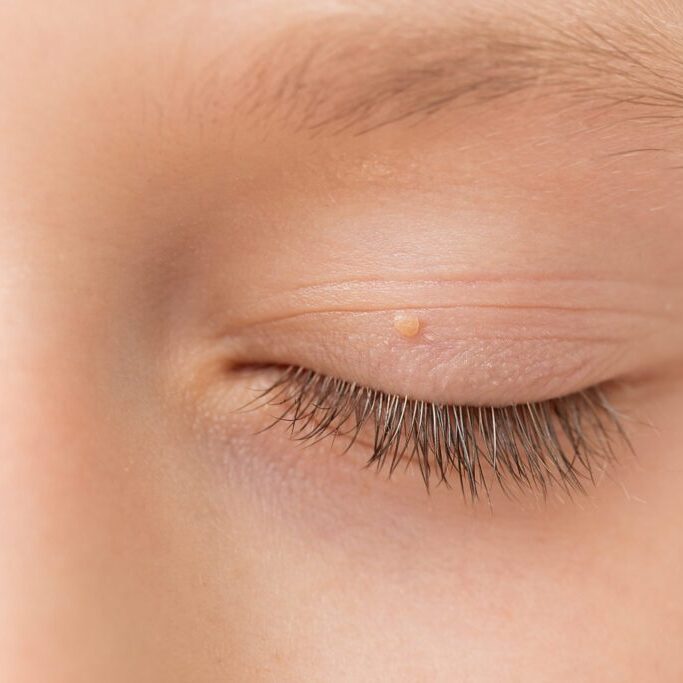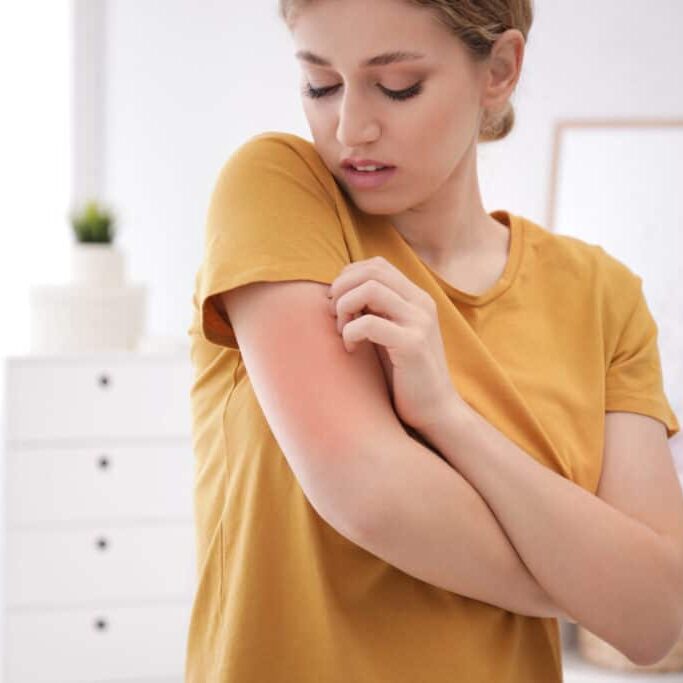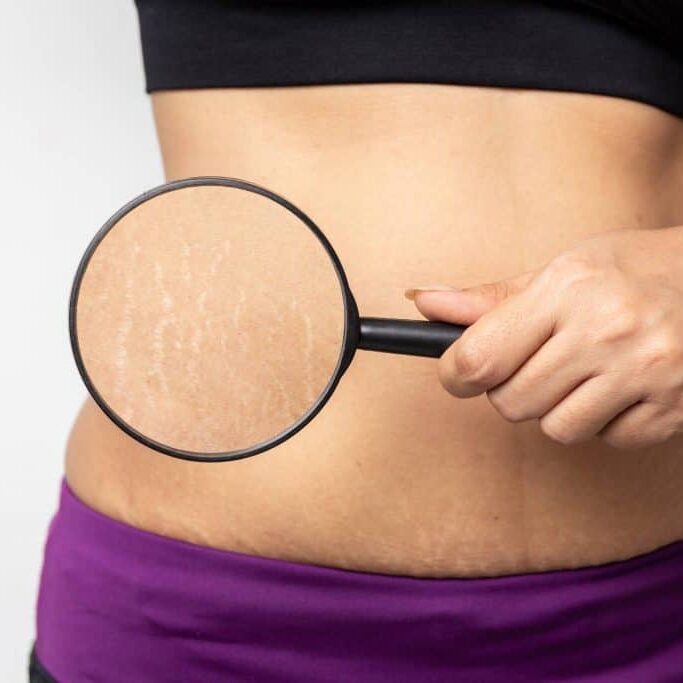What Are the Home Remedies For Eczema?
What is Eczema?
Eczema is a very broad term used to describe a dry skin condition that comes in different forms and varies from person to person. It is not contagious, so it is safe to be around those who suffer from this condition. In mild cases of eczema, the skin is dry, red, and itchy. It is common in children, but it can also occur at any age. People who have had eczema during their childhood are more likely to get it again later in life. It is long-lasting (chronic) and tends to flare periodically. It may be accompanied by asthma or hay fever.
Types of Eczema
Atopic Dermatitis:
This type of eczema is chronic and inflammatory, you may have a genetic predisposition to develop atopic dermatitis or AD if your family has a history of this type of eczema, which means that it could be hereditary but does not need to be transmitted from the parents. the child in all cases. AD usually develops in children under the age of 5, and a combination of genetic and environmental factors can influence who gets infected.
Contact Dermatitis:
As the name suggests, contact eczema occurs as a result of contact with allergens or irritants in our environment, which causes the skin to become red and itchy. In most cases, contact eczema occurs on the arms and legs, or parts of the body that are affected.
Pompholyx or Dyshidrotic Dermatitis:
Pompholyx eczema is generally confined to the hands and feet and involves the development of watery blisters with intense itching that mainly affect the sides of the fingers, palms of the hands, and the soles of the feet. This condition can occur at any age, but it is common before age 40.
Nummular Dermatitis:
This type of eczema causes round, coin-shaped spots to form on your skin. The word “nummular” means coin in Latin. Nummular eczema looks very different from other types of eczema, and it can itch a lot.
Stasis Dermatitis:
Stasis dermatitis happens when fluid leaks out of weakened veins into your skin causing swelling or edema. This poor circulation takes a toll on the skin, causing redness, itching, flaking, and sometimes pain. It occurs primarily on the lower legs in older patients as pressure over time damages the blood vessels in the lower legs resulting in this condition.
Eczema Craquele or Aesteatotic Eczema:
Asteatotic eczema is a common type of eczema that occurs as a result of dry skin. It got its name, eczema craquelé, from its cracked appearance. The most common site is the shins, but asteatotic eczema may occur elsewhere including upper limbs and trunk. Asteatotic eczema is mainly due to water loss from the uppermost layer of skin. This occurs because of a breakdown of the skin barrier due to genetic predisposition and injury by environmental factors like low humidity (winter, desert, high altitude, travel, use of dehumidifier or fan heater)Excessive bathing especially using soaps and detergents.
Causes of Eczema
There are many contributing causes of eczema as the above variations imply. Although the exact cause of eczema is unknown, common triggers would include increasing dryness of the skin and/or contact with specific allergens or irritants. Eczema frequently occurs in families who have a history of other allergies or asthma. Defects in the skin barrier can allow moisture to go out and bring germs to grow more plentifully on the skin, resulting in secondary topical infections. People can effectively control this disease with medical treatment and by avoiding irritants.
As mentioned, another possible cause of certain types of eczema is physical contact with chemicals, fabrics, and dyes to which you may be allergic. The resulting skin rash is called contact dermatitis. Possible culprits include perfumes, soaps or detergents with preservatives and dyes, nickel, wool, plants, such as poison ivy, rubbing alcohol, bleach, and pesticides.
Here Are Some Home Remedies To Cure Eczema
Take an Oral Allergy or Anti-itch Medication:
Options include nonprescription allergy medicines (antihistamines) — such as cetirizine (Zyrtec) or fexofenadine (Allegra). Also, diphenhydramine (Benadryl, others) may be helpful if itching is severe. But it can make you drowsy, so it’s better for bedtime.
Moisturize Your Skin at Least Twice a Day:
Use a moisturizer everywhere while your skin is still wet from a bath or shower. Pay special attention to your legs, arms, back, and side of your body. If your skin is already dry, consider using oil or lubricating cream. Remember the thicker the better. Ointments will lock in moisture better than creams or lotions that are not as thick.
Avoid Scratching:
Cover the itchy area if you can’t keep from scratching it. Trim nails and wear gloves at night.
Apply Cool, Wet Compresses:
Covering the affected area with bandages and dressings helps protect the skin and prevent scratching.
Take a Warm Bath:
Sprinkle the bathwater with baking soda, uncooked oatmeal, or colloidal oatmeal — a finely ground oatmeal that is made for the bathtub (Aveeno, others). Soak for 10 to 15 minutes, then pat dry and apply medicated lotions, moisturizers, or both (use the medicated form first).
Choose Mild Soaps Without Dyes or Perfumes:
Be sure to rinse the soap completely off your body.
Apply an Anti-inflammatory Cream and/or Calamine Lotion to the Affected Area:
A nonprescription hydrocortisone cream, containing at least 1 percent hydrocortisone, can temporarily relieve the itch. Apply it to the affected area before you moisturize. Once your reaction has improved, you may use this type of cream less often to prevent flare-ups.
Use a Humidifier:
Hot, dry indoor air can parch sensitive skin and worsen itching and flaking. A portable home humidifier or one attached to your furnace adds moisture to the air inside your home. Keep your humidifier clean to prevent the growth of bacteria and fungi.
Wear Cool, smooth-textured Cotton Clothing:
Reduce irritation by avoiding clothing that’s rough, tight, scratchy, or made from wool. Also, wear appropriate clothing in hot weather or during exercise to prevent excessive sweating.
Treat Stress and Anxiety:
Stress and other emotional disorders can worsen atopic dermatitis. Acknowledging those and trying to improve your emotional health can help.
These home remedies do not guarantee to treat Eczema. It is always a good idea to talk to your doctor about what specifically you or your loved one may need. If you suffer from any form of eczema schedule an appointment and speak with one of our providers to discuss what to do to help you love your skin. See our services at Smart Skin Dermatology, or contact us.






